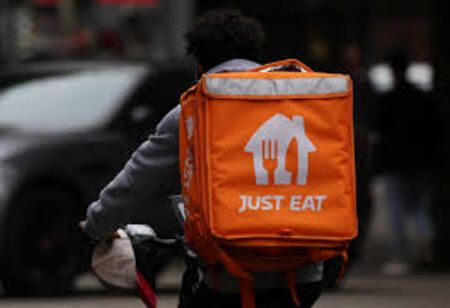
Prosus Notifies the EU for an Assessment Regarding Just Eat's Acquisition


Amsterdam-based investment firm Prosus and Just Eat Takeaway.com have reported their 4.1 billion euro ($4.73 billion) merger to the European Union's competition authority, initiating an investigation into the merger.
The company expresses enthusiasm in announcing that they have officially informed the European Commission about the proposed acquisition of Just Eat Takeaway.
The group is collaborating with the commission and is optimistic about receiving approval for the deal. Prosus stated that acquiring Just Eat would allow it to incorporate artificial intelligence into the food delivery company's operations, enhancing efficiency and fortifying its competitiveness against rivals like Uber Eats.
Prosus, which has a minority interest in competitor Delivery Hero, revealed its intention to purchase Just Eat in February; a transaction anticipated to establish the world's fourth-largest food delivery service by gross transaction value.
Also Read: Reshma Saujani: Reshaping Social Attitudes Around Gender and Tech
Chief Executive Fabricio Bloisi noted at that time that the goal was to transform Just Eat into a leading company in Europe. Mergers that surpass certain thresholds require scrutiny and authorization from the commission before proceeding.
If the regulator suspects that a merger could lead to the abuse of market dominance, it can launch a more detailed investigation. Companies have the option to propose concessions—such as selling off parts of their merged operations or committing to certain investments—to alleviate the regulator's concerns.
The demand for food delivery services surged during the Covid-19 pandemic as restaurants closed, yet businesses in this sector face fierce competition and a dip in consumer spending due to rising prices.
Also Read: Dave Thomas: A Role Model for Aspiring Entrepreneurs, Philanthropists
This market is also under close observation by European competition authorities. Earlier this year, German firm Delivery Hero faced a fine from the commission's antitrust regulator after being found guilty of illegally engaging in cartel behavior with Spain's Glovo—such as agreeing not to hire each other's employees and sharing sensitive commercial information—before eventually acquiring a controlling interest in the company.
"These practices were facilitated through an anticompetitive use of Delivery Hero's minority stake in Glovo," says Teresa Ribera, the EU's commissioner for competition.